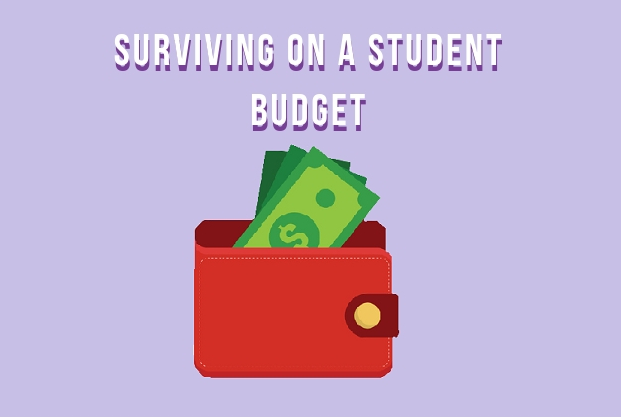As a student, here is how I budget my money amid the pandemic

Today, managing a student’s budget is difficult in many different ways. The unpredictable and unstable condition of student life and employment is one of the major concerns. This aspect is only made worse by the fact that we are still currently experiencing a pandemic. However, there are ways you can employ to cope with the pandemic’s uncertainty.
Let me now share with you some ways I used to manage my finances during the pandemic.

We are all aware of the country’s current socioeconomic condition, which makes budgeting challenging. Given the ongoing pandemic, it is essential to know how much money to spend and where to spend it.
Having good money management skills is a sign of maturity and offers benefits. It is advisable to begin learning it at a young age. Consider these suggestions.
Make emergency savings a priority

This one is really important, and I’ve learned to value it. You must first determine your income before making a list of the expenses you must make, such as rent, bills, transpo, and so forth. Then, compare it to your actual revenue to determine what additional expenses you are making.
You can begin creating an emergency monthly budget once you’ve determined what you’re spending your money on. Think about which one of these expenses must you make every month without fail. Or what is not necessary? Also bear in mind that this budget is not for regular monthly costs, simply for emergencies.
Once you’ve done this, you’ll have a backup plan in case you ever run out of money. Additionally, it will show you where you might limit your spending.
Achieve good grades

Your academic performance will determine your eligibility to apply for scholarships, and once you do, you may receive financial assistance. The Vice President of Mack Investment Securities Inc., Ed Gjertsen II, CFP, stated in an article that “good to great grades can go a long way at institutions giving merit-based scholarships.” The majority of emphasis may go to athletic scholarships, but earning strong grades might lead to financial prospects.
Additionally, for families that find themselves in unexpectedly challenging financial situations, scholarships offer a continuous opportunity.
Separate wants from needs

Learn how to control your spending. There are some costs that are largely fixed each day and rarely changed. Consider your everyday commute fare as an example; try to resist the urge to take a cab both to and from school. Remain with public transportation.
Could you get by with instant coffee instead of that overpriced cup of coffee? Choosing to forgo daily coffee shop purchases might either save or cost you a thousand pesos!
Keeping track of your spending can help you learn to tell what you can live without and what you cannot. Try to reduce your risk of going overboard.
Use credit cards responsibly

I understand that getting a credit card while in college sounds exciting, but it’s important to exercise discipline because it’s simple to rack up a lot of debt while you’re a student, especially if it’s your first time using a credit card. Try to set aside the cash equivalent every time you use your credit card and store it in a secure location until it’s time to pay the monthly payment if you want to improve your credit without running the danger of going overboard and building debt.
Organize everything
I discovered this from my mother. Sort your bills and, in my case, receipts according to category and date of issue. Then, organize them so that you can easily access the information in case you need to know your spending patterns or have a dispute with someone over a bill. By doing this, you will avoid wondering where all of your money went when you check your bank account.
Learn to say NO

For many teenagers like me, peer pressure can have enjoyable and entertaining results, but it can also be expensive. Each student has a different monthly spending limit. I am aware of people who would spend their last money to go out to eat with friends in order to keep up standards or to please other people.
Learning to say no when you go over your predetermined budget is a necessary component of independence and financial management. Your monthly budget should allocate a predetermined amount for extras like entertainment, takeout, and other “self-care” activities.
The 50-30-20 rule, made popular by Sen. Elizabeth Warren, divides your finances into small chunks and is another well-liked budgeting strategy. The guideline states that you should spend 50% of your income on necessities, 30% on wants, and 20% on debt repayment and savings.
Angelika is an aspiring producer and writer with a love for film and media production. She enjoys writing on a diverse range of topics, including lifestyle, health, and movie-related content. She likes to cook for her family and spend her free time with friends.





